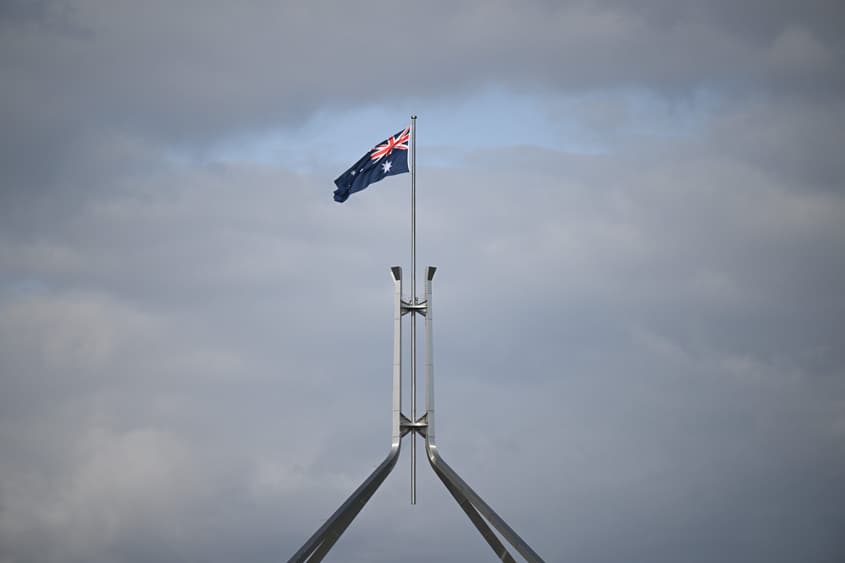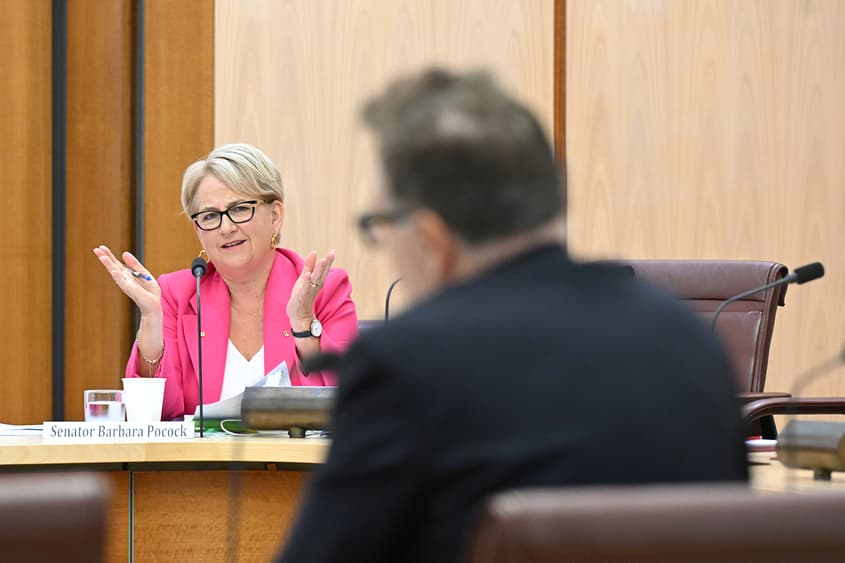Secret dinners between politicians and lobbyists are back in the news, but how do they happen and why is it such a problem?
Thu 2 Oct 2025 00.00

Photo: AAP Image/Lukas Coch
Secret dinners between politicians and lobbyists are back in the news, with the Australian Financial Review’s Paul Karp reporting that:
“Insurance managers paid NSW Labor nearly $3800 for a lunch with Treasurer Daniel Mookhey and Doordash coughed up $3300 for dinner with the state industrial relations minister, in separate fundraising events held days after the government introduced legislation affecting those sectors.”
A planning lunch organised by the NSW Liberals was not so lucrative, but tickets still sold for hundreds of dollars.
This murky practice is called “cash-for-access”.
Cash-for-access is when a company or lobbyist pays money in exchange for exclusive access to a decision-maker. Often, these are lunches or dinners, like the $5,000-a-head dinner with Prime Minister Anthony Albanese, Treasurer Jim Chalmers and Deputy Prime Minister Richard Marles.
Sometimes, even the opportunity to buy a ticket is only available to those who already paid a “corporate membership” fee. It costs between $33,000 and $121,000 to join the Labor Party’s “business forum” – which gets a lobby group some free tickets and discounts on others.
Disclosures of cash-for-access payments are a mess. They are sometimes counted as donations, and other times disclosed as “other receipts”. Sometimes the lobbyist calls it a donation, but the political party receiving it disagrees. Disclosures are scattered between state, territory and federal branches of the same party.
Even when pieced together from different sources, the picture is rarely complete.
After a deal between the Labor Government and Liberal–National Opposition this year, the disclosure threshold for all financial contributions will be lowered to $5,000. The public will find out about more cash-for-access payments than it currently does, but not all of them. That’s because dinner with a government minister often costs less than $5,000, sometimes much less.
Since access can be bought so cheaply, the Australia Institute recommends requiring all cash-for-access payments to politicians to be disclosed, however small.
Australians will naturally be concerned that political contributions do not just win access, but also influence.
Even if a political contribution only buys an exclusive opportunity to communicate with a politician, that is still an opportunity not available to most Australians.
That said, political contributions are just one way for powerful companies and lobby groups to get access to politicians. Other forms of influence — like a lobby group running an attack campaign — can involve millions of dollars of spending, not the thousands that change hands to buy exclusive access.
Blanket bans on cash-for-access could easily be evaded through wink-and-a-nod arrangements between the parties involved, or by spending on other forms of influence.
Parliaments have already imposed donation caps as a way of supposedly limiting corporate influence.
However, donation caps in New South Wales, Victoria and Queensland have not stopped cash-for-access payments. Cash-for-access is cheap enough that it rarely (if ever) reaches donation cap thresholds, and so such caps will also likely fail to stamp out cash for access federally when the Albanese Government’s donation cap becomes law.
More transparency could help, including the requirement to disclose more detail about the meetings ministers and shadow ministers and their staff have with lobbyists.
Transparent reporting of cash-for-access payments allows the public to see for themselves how their elected representatives are choosing to spend their time, who they are willing to meet with, and why.
And political parties could always take a principled stand by agreeing to stop soliciting for cash in return for political access. Queensland Labor has done this twice, but reversed its decision both times – perhaps because the Liberal–National Opposition did not join them.
